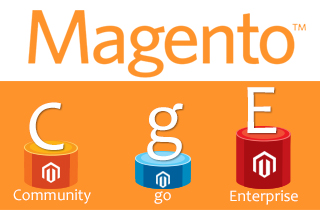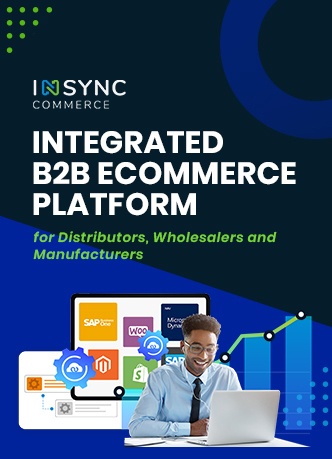
Choosing the right eCommerce platform as per one’s business requirements is a very crucial process. After having a clear understanding of one’s requirements and brainstorming on the available options for an eCommerce platform, many merchants conclude with Magento. Magento is one of the most powerful e-commerce systems available today.
But even after selecting Magento, merchants vacillate with regards to which version to go with, as Magento has three versions. This Blog Article will provide a glimpse on the topic ‘Compare Magento Go, Community and Enterprise’
According to popular definitions they can evaluated as :
- Magento Community – Magento for Tech Savvy as well as small merchants(Free Edition)
- Magento Enterprise – Magento for Mid-Large sized Businesses
- Magento Go – Magento as SaaS for small businesses
But to determine the best one to fit to your business, a lot of factors needs to be taken into consideration :
Cost : How much are you willing to shell for your online store?
Magento Community Edition:
Community Edition is free. But you will have to rent a web server to host your online store built on the Community edition. Being open-source you can hire resources on your own to design it and make customizations to meet your needs.
Magento Enterprise Edition:
Enterprise Edition is a premium Magento edition with a recurring annual license fee starting from 14,420USD. But the price tag comes with advanced features and gold-level technical support with a promise to look after all your technical issues at all times. But again like Community Edition you have to rent a web server to host your online store and hire resources to design it. Similar to Community Edition, being open-source this edition also provide unlimited scope for customization.
Magento Go:
This edition is a cloud-based hosted solution targeted for small businesses planning to open an online store without hassle. The pricing structure ranges from $15/month to $125/month depending on the features and capacity you require e.g. product SKUs, Admin accounts, Storage, Bandwidth, etc. Being offered as software as a service (SaaS) you are free from the hassles of renting a web server to host your store and maintenance.
Security:
Magento Community Edition:
Many people have this notion that the Community edition is devoid of the PCI compliance unlike the other two Editions and it can neither be made to become compliant. Yes, out of the box it’s not PCI compliant but it can be made to become so. Community Edition does not have Payment bridges but there are ample other ways to achieve PCI compliance.
Magento Enterprise Edition:
Enterprise Edition includes a PA-DSS payment bridge to assist secure payment meeting the industry security standards. It complies with PCI requirements.
Magento Go:
Magento Go is level 1 PCI-DSS compliant and hence assists secure payment meeting the industry security standards.
Performance :
Magento Community Edition:
Although many people are unaware but Community condition is pretty fast. Yes, if the number of products and other data is excessively huge it might slow down, but again with optimizations, instant page loads can be achieved. Incorporating an FPC system or Varnish page-cache only will make it twice as fast. Similarly using other performance-enhancing extensions like Nitrogento or Light speed can make Enterprise Edition-like performance achievable.
Magento Enterprise Edition:
Enterprise edition in spite of its multiple added features its fast. Out of the box only, it’s faster than Community Edition and comes with an FPC system. With a bit of tweaking, configuration, and tuning its performance will not make anyone regret their choice.
Magento Go:
Considering the targeted segment of Magento Go people find Magento Go fast enough. With a maximum bandwidth of 5Gb along with the support for 10000 product SKUs, it is fast. Now if one wishes to have a hassle-free online store belonging to the mid-small-sized entity group its performance will suffice. But make note of this, that it does not provide service beyond those numbers.
Functionality :
Magento Community Edition:
In terms of functionality out of the box Community Edition might lose the battle among the three, but if properly equipped with custom modules and extensions it can stand at par with the other two Editions. Many people comment that certain functionalities present in Enterprise Edition can be cost-prohibitive to produce in this Edition, but as of today with 5000+ extensions in the market it can be equipped with any feature ones business can possibly require.
Magento Enterprise Edition:
Enterprise Edition boasts of some great features which lacks in the two other out of the box versions. But those features can be achieved in Community Edition as well through extensions.
Some of the extra features available in this edition are:
- Loyalty system
- Private Sales
- Gift Registry
- Reward Points etc.
Check the detailed list of features offered by Magento Enterprise.
Magento Go:
Magento Go has a feature list that is not as long as that of the other two, but in comparison with the other big players(e.g. Volusion, Shopify, etc.) in the hosted solution marketplace, it holds a prominent place both in terms of cost and feature. Magento Go can also be equipped with extensions, but the number of available extensions is very poor being merely 17. Being a hosted solution it has limitations like multi-store feature, multiple languages (max. 3), admin accounts(max. 30), limited theming/design options, etc.
Check the detailed list of features offered by Magento GO.
Choosing the right Edition:
The first step in choosing the ideal one is to note down your own required features. Then go through all the features offered by the three versions. It might happen that going through them your list of requirements might get added by some more which you were unaware of. Then put your list down and compare, which one fits your requirements best, considering from the aspect of cost as well.
Always remember which ever Edition you select , you must perform the due diligence necessary to get the best output from the platform. So best of luck for selecting the Magento version best suited for you.













